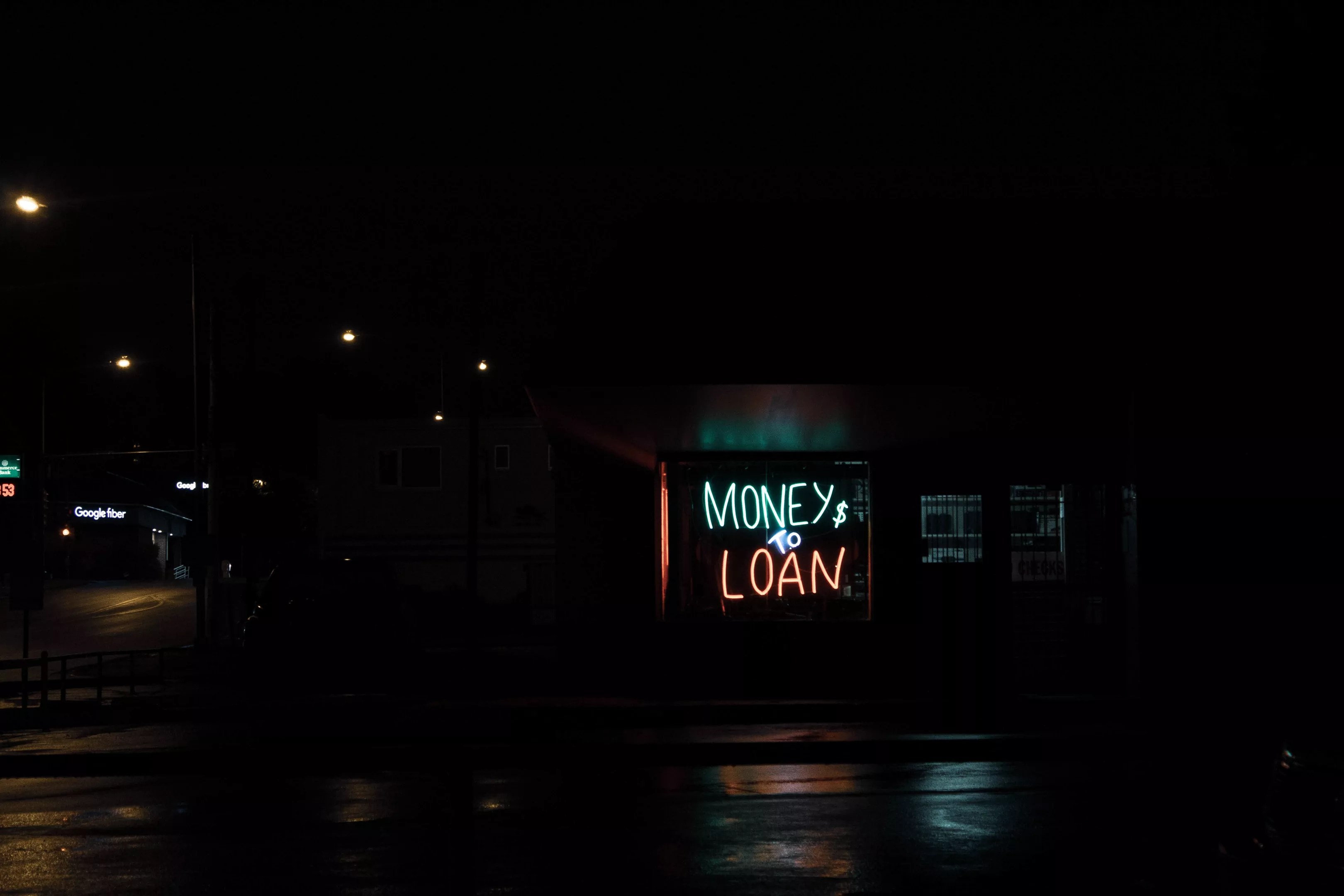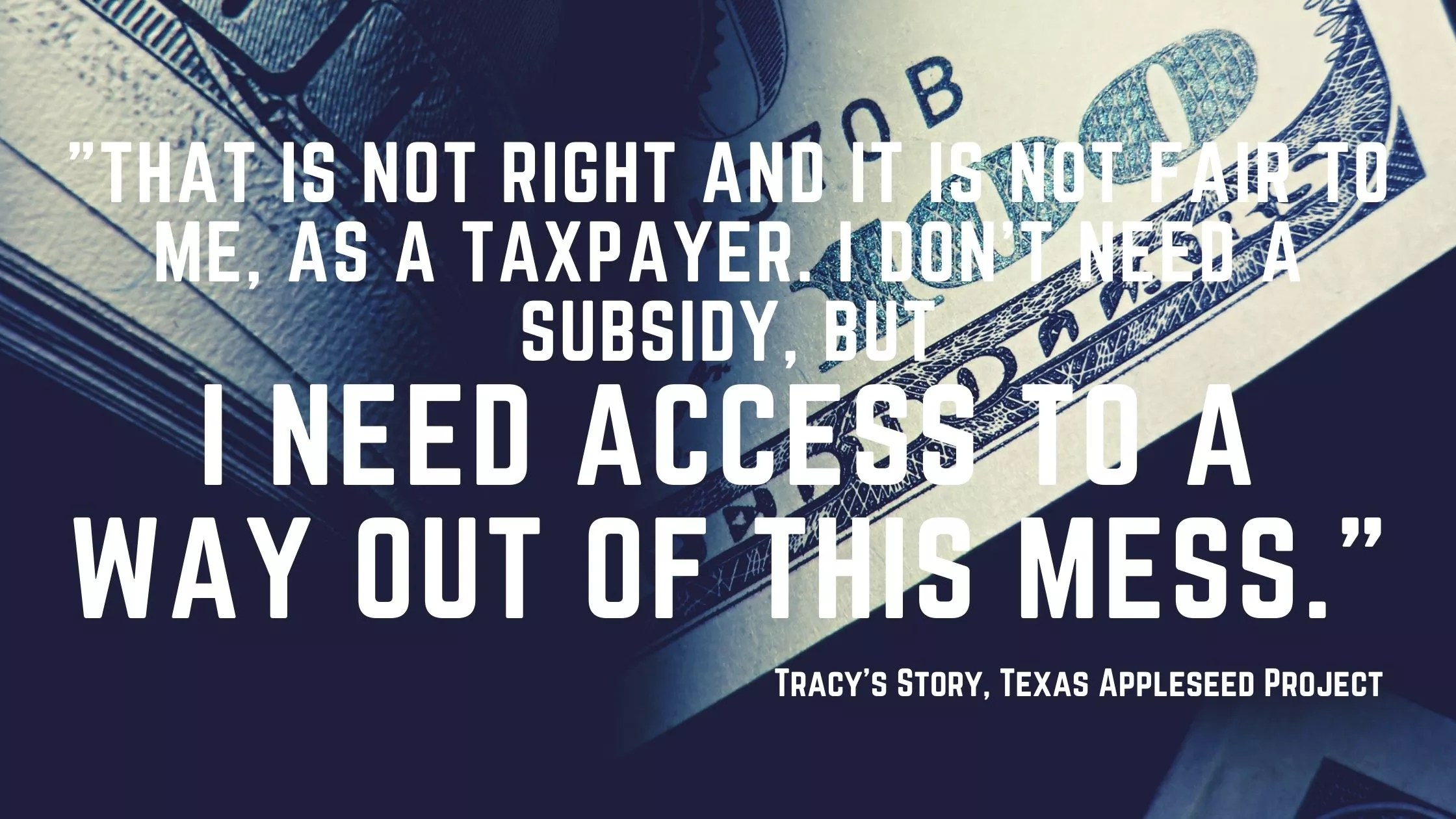
Daniel Bosse via Usplash

Audio By Carbonatix
When the pandemic hit and shelter-in-place orders were implemented, uncertainty reigned. How long would it last? How serious is this going to get? Restaurants shuttered. Bars were empty. Toilet paper was in short supply. Many adjusted to working from home or, worse, income loss.
To prop up the economy, Congress passed a $2 trillion CARES Act, which established the Paycheck Protection Program (PPP), a massive loan effort overseen by the Small Business Administration (SBA) intended to help those whose income vanished and, more important, lacked easy access to cash.
Not all went as planned, though, in terms of getting money to people who needed it most. Companies with savvy accounting departments scooped up the loans, while mom-and-pop business owners were left wandering around bank parking lots trying to figure out where the door was and how they’d been shut out so quickly.
Texas Appleseed, an advocacy group for social and economic justice, studied a slim slice of the PPP money pie. “[We] began to explore potential abuse of this funding, specifically as it relates to an industry with a history of trapping Texans into a cycle of debt – payday and auto title loan businesses,” the organization said in a recently released report.
Payday and auto title loans are theoretically intended to cover unplanned expenses and by name imply that borrowers repay the loans with their next paycheck; with auto title loans, cars serve as collateral. Interest and fees are often exorbitant, triggering a cycle of new loans and new fees for those who can’t repay quickly.
In one example provided to Texas Appleseed, a South Texas grandmother received a $1,800 loan on her car title after she lost her job because of COVID-19. In the end, she paid back $5,500 for the original loan to a company that received a $25 million loan from the Federal Reserve at 3.5% APR.
“Texas stands out among all but a handful of other states, with no caps on the total charges for payday and auto title loans,” Texas Appleseed reported. “The result has been a pattern of high APRs and increasing fees.”
Initially, payday lenders weren’t allowed to dip into the PPP pool. They cried foul and sued, but eventually dropped lawsuits in favor of a swifter route: Congress. Last April, Politico reported that 28 congresspeople wrote the SBA requesting “small-size nonbanks” be allowed to apply for PPP funds. Rep. Lance Gooden, a Republican whose district includes parts of Dallas County and areas southeast, provided one of the signatures. (According to FollowTheMoney.com, Gooden’s 2020 election campaign received $71,300 from the payday and title loan industry.) Gooden didn’t respond to a request for comment.

A quote from Tracy, who shared her payday loan story with Texas Appleseed.
Lauren Drewes Daniels/Canva.com
Eventually, not only were the coffers opened to payday and auto title loan companies, according to Texas Appleseed, they also received preferential treatment. “They were also among the early recipients of the funds,” the report said. “Thirteen of the fifteen operations obtained the loans within the first month of the program rollout. In fact, many of these loans were granted before it was clear that payday and auto title loan operators qualified.”
In addition to the fast-pass, these lenders received more money. When most small businesses received on average $567,033 per loan, payday and auto title operators received an average of $1.4 million. All told, statewide payday and auto title loan businesses received more than $45 million in PPP funds and continued to offer loans at interest rates of 200% to 500% during the pandemic.
While most PPP funds were designated for wages, according to the SBA, up to 39% of the loan amount could be used for “nonpayroll costs” and still be forgivable. That means 39% of the average $1.4 million could be loaned out at 200% to 500% APR and not a dime has to be paid back.
LoanStar Title Loans, the Texas subsidiary of Wellshire Financial Services LLC, received a $25 million loan at 3.15% through the Main Street Lending Program. “The loan, intended to support small and mid-sized businesses, has a five-year term and includes no principal payments for two years and no interest payments for one year. Yet, this same business makes auto title loans to Texans at over 350% APR,” Texas Appleseed reported.
Todd Frankel at The Washington Post reported that LoanStar and other subsidiaries of Wellshire are “part of a multistate title loan empire run by Atlanta businessman Rod Aycox,” who was also a major donor to former President Donald Trump.
Federal Cash Advance of Oklahoma, a Texas-based company that operates as CashMax, received $944,400 in PPP. LoanMe got $4.8 million. MoneyLion Inc. nabbed $3.2 million.
According to data collected by the Texas Office of Consumer Credit, the average APR from an installment payday loan in 2019 was 490%; title loans averaged 418%. A total of 18% of Texas borrowers had cars repossessed (42,878) in 2019 and paid a total of $1.64 billion in fees alone.
Cities can enact regulations on these businesses, but even that is difficult. In 2019, Texas Attorney General Ken Paxton flipped a Dallas regulation when he decided that “signature” and “small-dollar loans” weren’t the same as payday loans, allowing businesses the city had worked to regulate back in the game. Just last month Dallas City Council voted unanimously, minus an absent Mayor Eric Johnson, to include those types of lenders in the regulations, closing the loophole.
United Way of Metropolitan Dallas has long worked with Texas Appleseed and the city of Dallas to curb predatory payday lending practices. Stephanie Mace, the vice president for Strong Communities at United Way Dallas, says the pandemic has brought with it an increase in the need for all types of financial support.
She suggests anyone looking to escape the payday debt trap contact St. Vincent de Paul of Dallas and those in need of rental assistance contact United Way or dial 2-1-1.
“Also, employers can help by providing their employees access to a reasonable and safe loan as a benefit to their employees – at no risk to their business. Options include CLC and TrueConnect,” Mace said.
State Rep. Diego Bernal of San Antonio has introduced House Bill 206 aimed at curbing predatory lending at the state level.